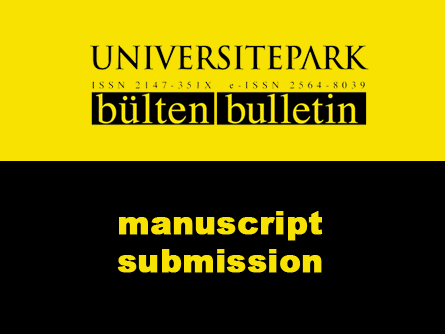Students’ Authentic Experiences of On-the-job Training Programs
pp. 7-23 | Published Online: October 2022 | DOI: 10.22521/unibulletin.2022.111.1
Chi Hong Nguyen, Vi Thanh Tran Thach
![]() Full text PDF |
525 |
310
Full text PDF |
525 |
310
Abstract
|
Background/purpose – While current research has focused on the potentials and limitations of on-the-job-training (OJT) programs from higher education administrators, as well as employers’ and teachers’ perspectives, this study takes those of students’ on board. It extends the conventional conceptualization of students’ satisfaction of OJT as mere psychology. Materials/methods – By using Wilt et al.’s (2019) concept of (in)authenticity, this study employed in-depth interviews with 18 students at a private university in Vietnam. Results – The study found that students’ authentic experiences of OJT comprise four interrelated elements; students’ self-esteem and confidence, psychological changes, collegiality, and realization of possibilities and opportunities that arise from their failure. Conclusion – This article points out that students authentically experience this program as part of their lives rather than separate entities that are often marked in OJT evaluative frameworks. The way they find their OJT experiences authentic goes beyond their awareness of learning that is forged by OJT evaluative frameworks or supervisors’ instructions to how they make sense of their present experiences in relation to their interactions with others in the workplace to fulfill their future aspirations for work and life. |
Keywords: Authenticity, on-the-job training (OJT), higher education, authentic experiences, learning, students’ confidence, students’ psychology
ReferencesBernardo, A., Landicho, A., & Laguador, J. M. (2014). On-the-job training performance of students from AB Paralegal Studies for SY 2013-2014. Studies in Social Sciences and Humanities, 1(4), 122-129. https://10.6007/MAJESS/v2-i2/1388
Billett, S., Cain, M., & Le, A. H. (2016). Augmenting higher education students’ work experiences: preferred purposes and processes. Studies in Higher Education, 43(7), 1279-1294. https://doi.org/10.1080/03075079.2016.1250073
Coiacetto, E. (2004). The value of a structured planning practicum program. Australian Planner, 41(2), 74-82. https://doi.org/10.1080/07293682.2004.9982357
Ducan, H., Range, B., & Scherz, S. (2011). From professional preparation to on-the-job development: What do beginning principals need? International Journal of Educational Leadership Preparation, 6(3). https://www.ncpeapublications.org/index.php/volume-6-number-3-july-september-2011/393-from-professional-preparation-to-on-the-job-development
Grant-Smith, D., Gillett-Swan, J., & Chapman, R. (2017). WIL well-being: Exploring the impacts of unpaid practicum on student wellbeing. The National Centre for Student Equity in Higher Education (NCSEHE), Curtin University, Australia.
Grubb, W. N., & Lazerson, M. (2005). Vocationalism in higher education: The triumph of the education gospel. The Journal of Higher Education, 76(1), 1-25. https://doi.org/10.1353/jhe.2005.0007
Hascher, T., Cocard, Y., & Moser, P. (2004). Forget about theory - practice is all? Student teachers’ learning in practicum. Teachers and Teaching, 10(6), 623-637. https://doi.org/10.1080/1354060042000304800
Heidegger, M. (1962). Being and time (J. Macquarrie & E. Robinson, Trans). SCM Press.
Hughes, C. (1998). Practicum learning: Perils of the authentic workplace. Higher Education Research & Development, 17(2), 207-227. https://doi.org/10.1080/0729436980170206
Jackson, D. (2014). Employability skill development in work-integrated learning: Barriers and best practice. Studies in Higher Education, 40(2), 350-367. https://doi.org/10.1080/03075079.2013.842221
Jamil, N. A., Shariff, S. M., & Abu, Z. (2013). Students’ practicum performance of industrial internship program. Procedia – Social and Behavioral Sciences, 90, 513-521. https://doi.org/10.1016/j.sbspro.2013.07.121
Newman, G. E. (2019). The psychology of authenticity. Review of General Psychology, 23(1), 8-18. https://doi.org/10.1037/gpr0000158
Pulakos, E. D., Hanson, R. M., Arad, S., & Moye, N. (2015). Performance management can be fixed: An on-the-job experiential learning approach for complex behavior change. Industrial and Organizational Psychology, 8(1), 51-76. https://doi.org/10.1017/iop.2014.2
Smith, K., & Lev‐Ari, L. (2005). The place of the practicum in pre‐service teacher education: the voice of the students. Asia-Pacific Journal of Teacher Education, 33(3), 289-302. https://doi.org/10.1080/13598660500286333
Toohey, S., Ryan, G., & Hughes, C. (1996). Assessing the practicum. Assessment and Evaluation in Higher Education, 21(3), 215-227. https://doi.org/10.1080/0260293960210302
Trianasari, N., & Rahmawati, P. I. (2021). Should I quit? Understanding job stress and coping strategies among hospitality students during on the job training program. In A. Permanasari (Ed.), Proceedings of the 5th Asian Education Symposium 2020 (pp. 494-498). Atlantis Press. https://doi.org/10.2991/assehr.k.210715.101
Varga, S., & Guignon, C. (2020). Authenticity. In Stanford encyclopedia of philosophy. https://plato.stanford.edu/entries/authenticity/
Wilt, J. A., Thomas, S., & McAdams, D. P. (2019). Authenticity and inauthenticity in narrative identity. Heliyon, 5(7), 3-13. https://doi.org/10.1016/j.heliyon.2019.e02178
Wood, S. (2004). Fully on-the-job training: Experiences and steps ahead. National Centre for Vocational Education Research. https://www.ncver.edu.au/research-and-statistics/publications/all-publications/fully-on-the-job-training-experiences-and-steps-ahead
UNIBULLETIN News!
► New issue coming soon! (Volume 13 Issue 1, 2024)
► Call for Papers
UNIBULLETIN is calling for submissions. Authors are invited to submit papers from the all fields of the Education (General) and Social Sciences (General) in the international context. All submissions should be presented only in English.
